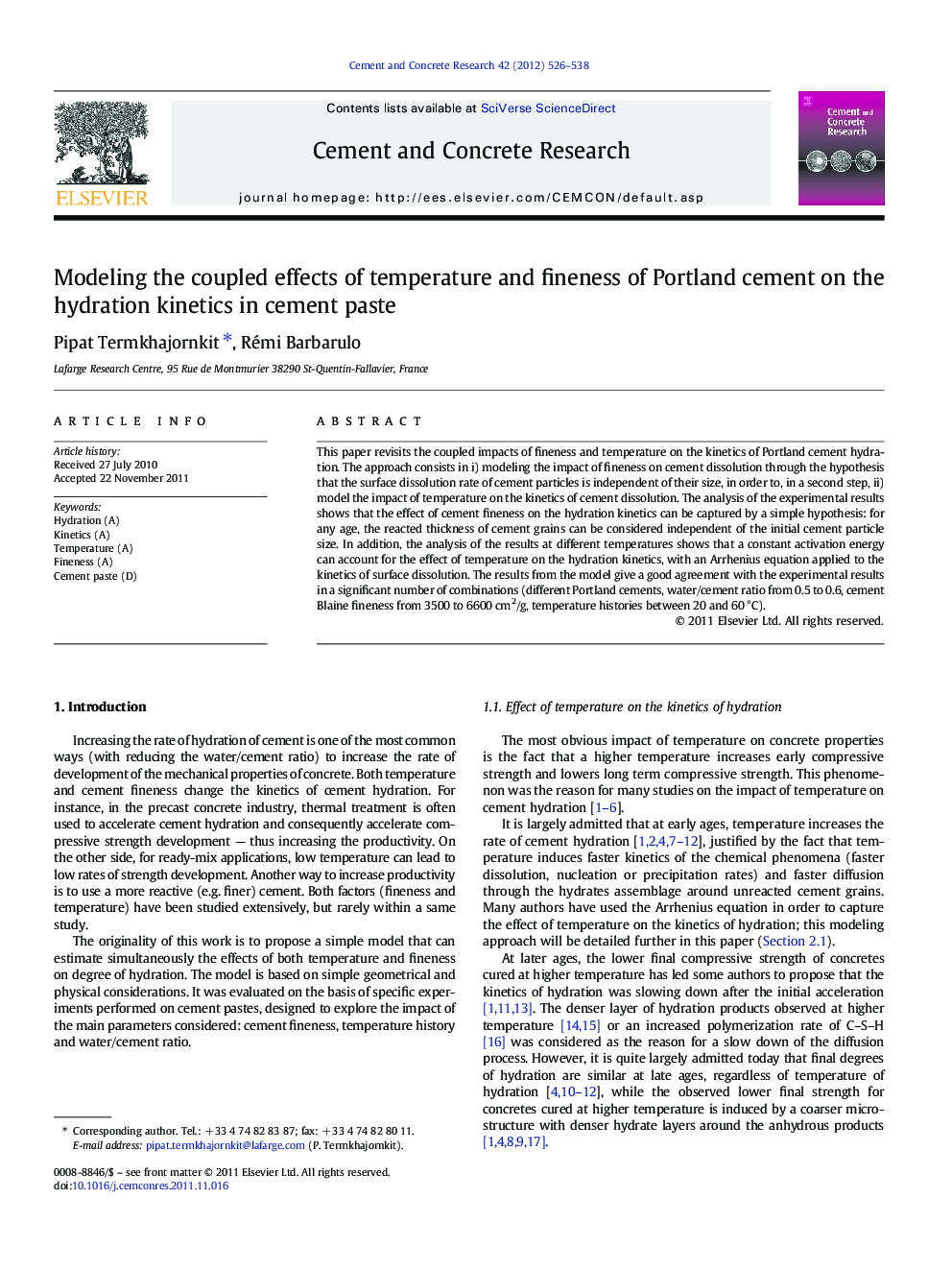| Article ID | Journal | Published Year | Pages | File Type |
|---|---|---|---|---|
| 1456630 | Cement and Concrete Research | 2012 | 13 Pages |
This paper revisits the coupled impacts of fineness and temperature on the kinetics of Portland cement hydration. The approach consists in i) modeling the impact of fineness on cement dissolution through the hypothesis that the surface dissolution rate of cement particles is independent of their size, in order to, in a second step, ii) model the impact of temperature on the kinetics of cement dissolution. The analysis of the experimental results shows that the effect of cement fineness on the hydration kinetics can be captured by a simple hypothesis: for any age, the reacted thickness of cement grains can be considered independent of the initial cement particle size. In addition, the analysis of the results at different temperatures shows that a constant activation energy can account for the effect of temperature on the hydration kinetics, with an Arrhenius equation applied to the kinetics of surface dissolution. The results from the model give a good agreement with the experimental results in a significant number of combinations (different Portland cements, water/cement ratio from 0.5 to 0.6, cement Blaine fineness from 3500 to 6600 cm2/g, temperature histories between 20 and 60 °C).
